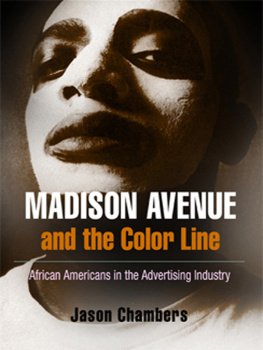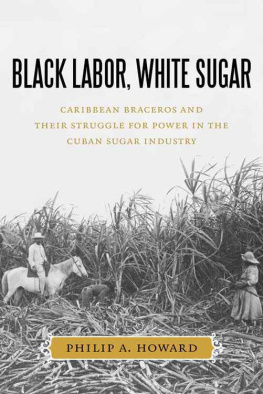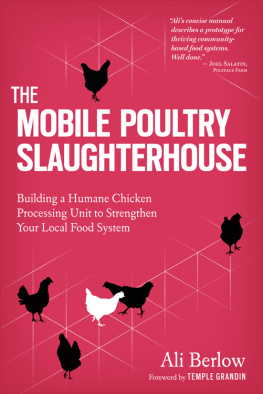Published by Louisiana State University Press
Copyright 2014 by Louisiana State University Press
All rights reserved
Manufactured in the United States of America
First printing
Designer: Barbara Neely Bourgoyne
Typeface: Ingeborg
Printer and binder: Maple Press
Library of Congress Cataloging-in-Publication Data
Gray, LaGuana, 1974
We just keep running the line : black Southern women and the poultry processing industry / LaGuana Gray.
pages cm
Includes bibliographical references and index.
ISBN 978-0-8071-5768-8 (cloth : alk. paper) ISBN 978-0-8071-5769-5 (pdf) ISBN 978-0-8071-5770-1 (epub) ISBN 978-0-8071-5771-8 (mobi) 1. Poultry industryEmployeesSouthern StatesSocial conditions. 2. African American women employeesSouthern StatesSocial conditions. 3. Poultry plantsManagementSouthern StatesHistory. 4. Discrimination in employmentSouthern StatesHistory. 5. Industrial relationsSouthern StatesHistory. 6. Working class African AmericansSouthern StatesHistory. I. Title.
HD9437.U63S684 2014
331.4'8649308996073075dc23
2014011366
The paper in this book meets the guidelines for permanence and durability of the Committee on Production Guidelines for Book Longevity of the Council on Library Resources.

ACKNOWLEDGMENTS
As with any work such as this, the time, effort, love, and patience of many people poured into it. I cannot, in this space, fully thank all of themfor everyone from research assistants to librarians across the country to encouragers from my small hometown played a part. So, please, charge any omissions to my head and not my heart! I do want, however, to express the most gratitude and admiration to the women and men poultry processing workers who opened up their lives, homes, and hearts to me and made this book possible. It could not have been without you. I hope that I did your stories justice.
To my colleagues at my alma mater, Louisiana Tech, particularly Drs. Stephen Webre, Elaine Thompson, and Dave Anderson, thank you for checking on the work (and on me) and for your support in giving me platforms to share and refine it. To my colleagues in the Department of History and the Honors College at the University of Texas at San Antonio, thank you for the advice and being both cheering sections and gentle taskmasters, according to my need. To the women senior faculty, including Landon Storrs, Bernadette Pruitt, Rhonda Gonzales, Kirsten Gardner, Ann Eisenberg, Sonja Lanehart, and Joycelyn Moody, who have taken the time to advise and mentor me and help me learn the ins and outs of academic life, I cannot thank you enough. I know that you all know how important that is to junior faculty, particularly underrepresented junior faculty. And to my poor department chair, Gregg Michel, who bravely suffered through a million questions, e-mails, and brief meetings from/with me as I worked through the book process, thank you. The support of my fellow junior faculty members during this process was absolutely crucial. So, Kinitra Brooks, Jerry Gonzalez, and Linda Benavides, I appreciate you so much.
My circle of women friends and family has been absolutely crucial in sustaining me, a lifelong task, though they went into overdrive while I was researching and writing. A-1, Becky, Coti, Diante, Keisha Grace, both my Kims, Melissa, Mrs. O, Sister, Tesha, Tessa, TeTe, TK, and Ms. Tosha, I love you and am so grateful for the gifts of your love, support, kindness, laughter, tears, and assistance. To my Louisiana School for Math, Science, and the Arts Sweeties and my larger LSMSA family, I love you.
To my family, particularly my aunts and uncles, first cousins, nieces and nephews, and brother, thanks for your enthusiasm for the project and always checking on me. I promise to be less of a poorly traveled hermit now. Thank you, Aunt Jo, for always being there, no matter what. For Jamari, Jakobe, Jalen, and Corey, who lived with a frantic, stressed me in the last stages of preparation of this workI realize that old saying, If Mamas not happy, no one is happy, is somewhat true. Im sorry! I love yall, though! My parents both inspired and financially and emotionally supported this projectI am forever in debt to them for their unconditional love and belief in me. Rest in Love, Daddy.
And, Mama, I will simply paraphrase something I said long ago: I know that I am a product of your labor of love. I hope you are proud of the fruits that I bear.
WE JUST KEEP RUNNING THE LINE
INTRODUCTION
In September 2009, after a little more than twenty-three years, my mothers tenure as a poultry processing worker in El Dorado, Arkansas, came to an end. She worked initially for ConAgra Poultry and ultimately for Pilgrims Pride. She was mostly noncommittal about her job, dismissing the difficulty of the work by noting that processing chickens will feed and clothe you. Still, there was always the unspoken knowledge that, though my brother was also a longtime poultry processing worker, neither of them wanted my sister or me to work at the plant. When my sister asked my brother to help her get a summer job there, he refused. My mother told her, You dont need to work there. The reason, quite simply, is this: processing line work is hellacious. Poultry plants rapid line speeds and extreme temperatures are linked to a number of physical ailments. Beyond the physical harm they endure, poultry processing workers confide in researchers that they labor in psychologically harrowing environments in which racist and sexual harassment are rampant.
I knew about the repulsive nature of the work from my mother, my brother, and many other relatives who made their way, every workday, through the steel gates of the El Dorado, Arkansas, and Farmerville, Louisiana, poultry plants. As a child, I quickly learned why my mother washed her clothes separately from the rest of the familys; we all understood that no amount of bleach would obliterate the scent of the plant. I was witness to the chicken rashes and boils that my family endured, which the company maintained had nothing to do with contact with chicken carcasses and repeated exposure to the toxin-laced water used to clean processing room floors and assembly lines. Many newly hired people quit within days or weeks. They complained that the work was too hard, too cold, too fast.
Just how fast was explained by Mark Simmons, chairman of Simmons Food. In 1999, at a reception in honor of his companys fiftieth anniversary, Simmons noted that when Frank Pluss and his father opened a plant in Siloam Springs, Arkansas, in 1952, they could process 10,000 chickens a day. Today, he boasted, we can process 10,000 chickens in 30 minutes.
Because of my family members objections to my even considering temporary work in the industry, I was relatively ignorant of how poultry processing plants ran and the nature of poultry processing work. The messages I did receive were enough to make me wonder, what of the workers who have endured the phenomenal speed-up? Why did poultry processing have such a hold on this area? Why would anyone go into poultry processing work, and how did anyone stay? Those have been the guiding questions of this project. To try to answer them, I fashioned a history of one group of poultry processing workers, the black women who worked primarily in the poultry processing complex of El Dorado, Arkansas, and at the smaller complex in Farmerville, Louisiana.





 BATON ROUGE
BATON ROUGE